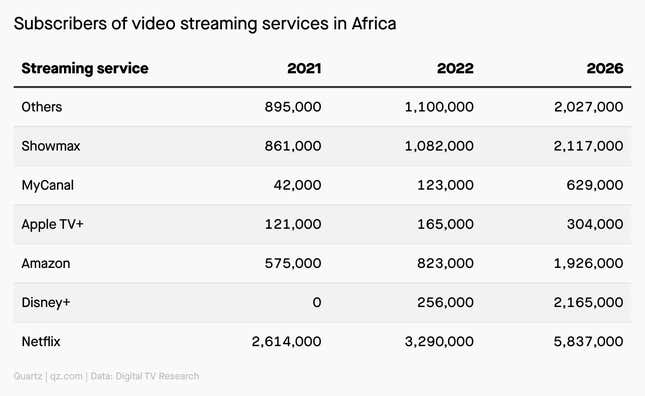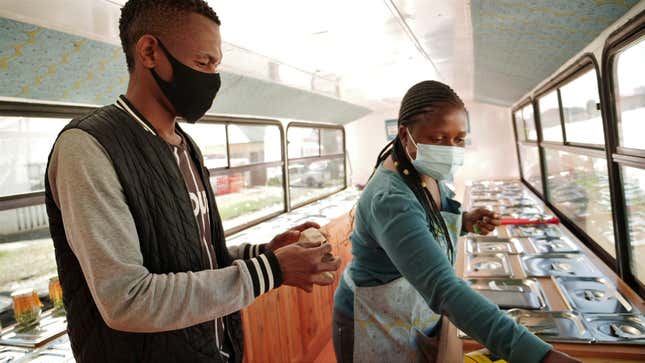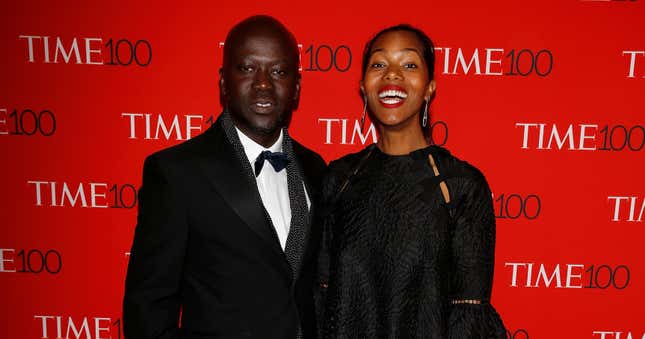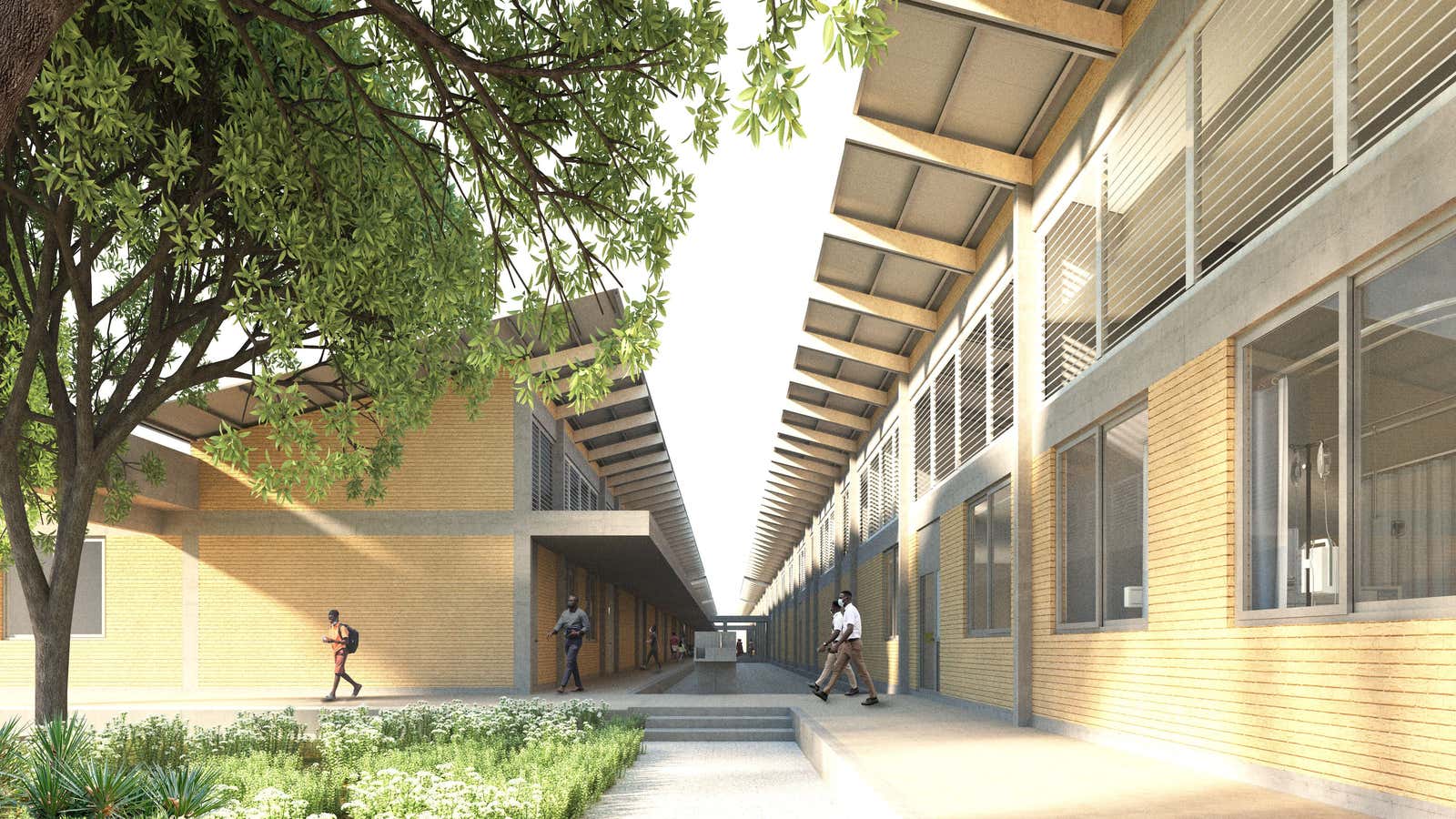Hi Quartz Africa readers!
In less than three years, OPay has gone from a curious startup known for its motorcycles in Lagos, Nigeria, to a financial services company worth $2 billion. The latest valuation comes after the company raised $400 million in a round led by SoftBank, with Sequoia Capital China and five other large firms participating.
OPay’s new valuation makes it the fastest African startup to cross $1 billion in value (although there’s a debate about whether it even is an African startup. OPay is owned by Chinese billionaire Yahui Zhou through Opera, the software company based in Norway).
In Nigeria, which has been the base for OPay’s main operations since the startup launched in 2018, “agent banking” is a recent source of growth. The company provides individuals with a point-of-sale machine and underlying software, so they can act as banks and ATMs. Though they may not be available 24/7, these agents are able to open bank accounts, receive deposits, and fulfill withdrawals. OPay says it processes $3 billion in transactions every month.
Venture capital has also driven the company’s rapid growth. Within a six-month period in 2019, OPay raised $50 million and then $120 million, setting down an early marker for its ambition to dominate African fintech. The plan was to be a super app for peer-to-peer payments, transportation, food, asset management, and even instant messaging.
SoftBank’s investment opens the possibility that it may support more African startups, though the size of this round indicates that those startups will have to be on a fast-track growth trajectory similar to OPay’s. That could come with its own kind of pressure, and SoftBank’s rocky adventure with WeWork remains fresh in many minds. Still, the company’s entry confirms that African fintech is mature and has the world interested. —Alexander Onukwe, west Africa correspondent
Stories this week
Africa joins the global space race. African countries are looking to space to meet the rising demand for connectivity, fueled by fast-changing data consumption patterns, and the growing need to bridge the digital divide in landlocked countries. Conrad Onyango unpacks the goals of the continent’s different space programs.
Brought to you by #KOT. The arrival of vaccine shipments are publicized events in Kenya. But there’s rarely an equal effort by the government to publicize locations where the public can access the doses. Carlos Mureithi looks at how Kenyans are using social media to spread details of Covid-19 vaccine availability.
Nigeria’s Robinhood-like apps at a crossroads. Four Nigerian companies that provide stock investment services are facing a dilemma after a court ordered their bank accounts to be frozen by the Central Bank of Nigeria. They insist business continues as usual, but Alexander Onukwue explains how the apex bank’s blessing is actually pretty necessary.
Kenyans are number one in peer-to-peer crypto trading. Internet-savvy Kenyans lead the world when it comes to individuals using digital currency platforms to trade amongst themselves, a new report shows. Conrad Onyango finds that the trend has been partly influenced by weakening African currencies due to the Covid-19 pandemic.
A new pandemic helps science combat an old one. Oxford University scientists responsible for the AstraZeneca Covid-19 vaccine are using the same technology to test a new vaccine against plague. Centuries after causing one of the worst pandemics in history, the infectious disease continues to afflict parts of Africa, writes Uwagbale Edward-Ekpu, which today accounts for 90% of all reported cases.
Charting the rise of streaming subscribers
The number of subscription video-on-demand users in Africa is projected to reach more than 5 million by the end of this year, and15 million by 2026, according to a new projection (pdf). While Netflix and Disney+ will grab a chunk of those subscribers, they face stiff competition from domestic platforms fighting for the continent’s eyeballs.

“The selective launch plans from some global platforms works in favor of regional players,” Simon Murray, principal analyst at Digital TV Research, said in the report. Carlos Mureithi analyzes what this means for local players like Showmax.
By the digits

7.8 million: South Africans out of a job in the second quarter of this year
34.4%: South Africa’s 2021 unemployment rate, its highest since 2008
41%: Unemployment rate for African Black women, the hardest hit group
40,000: Businesses affected by recent protests
1%: South Africans who own more than half the country’s wealth.
Sustained economic disruption from Covid-19, austerity measures, persistent inequality, a decline in foreign investment, and poor government policies have all been cited as contributors to South Africa’s record unemployment numbers. Yet even current data does not cover a recent wave of unrest following the arrest of former president Jacob Zuma, Tawanda Karombo writes, meaning an even grimmer outlook.
Dealmaker
Plentywaka, the Nigerian mobility startup, has secured $1.2 million in seed funding and announced the acquisition of Ghanaian startup Stabus. The investment was led by The Xchange, with participation from Techstars, SOSV, ShockVentures, Argentil Capital Partners, ODBA & Co Ventures, and angel investors.
PawaPay, a UK-based and Africa-focused payments company, has closed $9 million in seed funding to scale its operational presence, recruit talent, and expand into new markets. 88mph and MSA Capital co-led the round, with participation from Zagadat Capital, Kepple Ventures, and Vunani Capital.
Odiggo, the Egyptian-founded auto tech startup, has raised a $2.2 million seed round. Participating in the round were Y Combinator, 500 Startups, Plug and Play Ventures, Seedra Ventures, LoftyInc Capital, and Essa Al-Saleh (CEO of Volta Trucks). The investment is aimed at growing and expanding the startup’s team in UAE, Saudi Arabia, and Egypt.
How vaccine mandates work
Many companies around the world are issuing vaccine mandates for employees, which raises a few commonly held questions for employers considering a similar move. Do these ring any bells?
🔔 Is it legal?
🔔 What are other companies doing?
🔔 What should I consider in this policy?
We’ve rounded up 24 global firms’ policies and put together some solid answers to all of the above. You’ll need to be a member to read this one, so subscribe today to take 40% off (use code QZEMAIL40).
One big question
Why has Covid-19 had less of an impact in Africa?
Covid-19 deaths across Africa have increased since mid-July 2021, but the impact of the pandemic in sub-Saharan Africa remains markedly lower compared to the Americas, Europe, and Asia. A new paper by a team of public health researchers examines some of the factors that have been suggested as potentially influencing the low burden of Covid-19 illness, including:
- The young age demographic of sub-Saharan Africa
- Lack of long-term care facilities
- Potential cross-protection from local circulating coronaviruses
- Limitations of SARS-CoV-2 testing
- Effective government public health response
The researchers also lay out recommendations for Covid-19 strategies in Africa, which aim to improve health practices as the continent continues to struggle with low vaccination rates.
Person of interest

David Adjaye, the British-Ghanaian architect best known for designing the National Museum of African American History & Culture in Washington DC, is now giving a facelift to Ghana’s healthcare system. A design created by the architect’s 21-year-old London-based firm will be applied to dozens of new district hospitals in the country. Alexander Onukwue describes Adjaye’s vision for the project, his first healthcare commission and biggest endeavor yet in Africa.
Other things we liked
Stuck in Covid-19 limbo. In an investigation by VICE, reporter Tom Bowker found that a Chinese company has effectively imprisoned over 300 workers in a Mozambique cement factory, using the coronavirus pandemic as an excuse.
Reclaiming women’s voices in the media. Despite making up over half of the South African population, women’s voices are barely heard in the news. Quote This Woman+ is highlighting the expertise of women and marginalized people to journalists and news producers ahead of the upcoming municipal elections, writes Tolu Olasoji in Reasons to be Cheerful.
The struggle to save a house of music. For decades, Abdellah El Gourd’s Tangier home has been a sacred abode for the Gnawa musical tradition, often drawing in world-renowned jazz performers and eliciting genre crossovers. In the New York Times, Aida Alami reports on the possibility that Morocco may lose one of its cultural gems.
A tussle over fossil fuel funding. US president Joe Biden promised to re-evaluate US funding for overseas power plants, pipelines, and other projects that use fossil fuels. It’s a tricky balance in Africa, where the money props up polluting industries, but is also essential for improving access to electricity. This week, as Climate Home reports, the administration finally rolled out its new rules: It will nix funds for any coal or oil projects, but leave the door open for natural gas.
High hopes for Liberian cocoa. Despite having an environment conducive to growing cocoa, Liberia has had a history of crops of inconsistent quality, which means the country’s farmers are not getting as much value from their efforts as their Ivorian and Ghanaian counterparts. Lucinda Rouse reports in African Business how alternative markets in Europe and North America could open new doors for Liberian cocoa to thrive.
🎵 This brief was produced while listening to “Wazee wakatike” by Them Mushrooms (Kenya)
Our best wishes for a productive and ideas-filled week ahead. Please send any news, comments, suggestions, ideas, Liberian chocolate, and #KOT causes to [email protected]. You can follow us on Twitter at @qzafrica for updates throughout the day.
If you received this email from a friend or colleague, you can sign up here to receive the Quartz Africa Weekly Brief in your inbox every week. You can also follow Quartz Africa on Facebook.
